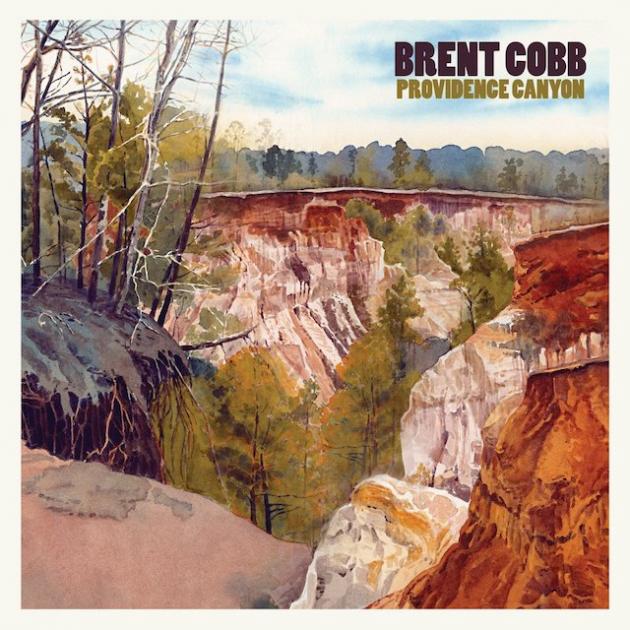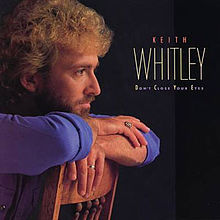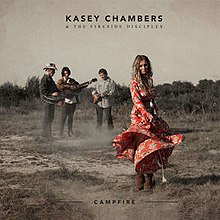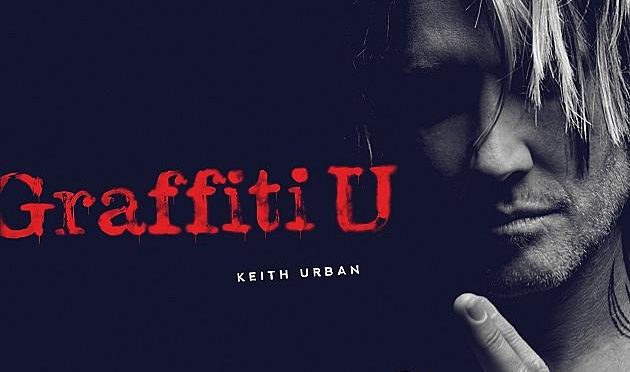Rating: 10/10
It may seem like a strange way to begin a review which flaunts the above rating, but I want to say first that I was absolutely, unequivocally not a fan of Brent Cobb’s 2016 record Shine on Rainy Day. Why is this important? It’s that 2016 wasn’t a year where I was reviewing regularly, and that album was something I heard but never commented on–I want you all to know how I felt about it and understand that this love is not some extension of blind Brent Cobb fandom, that it’s in fact basically the opposite, a testament to how ridiculously good Providence Canyon is as an album and to how much it marks an improvement for Cobb and a distinct defining of his sound.
The problem with Shine on Rainy Day for me personally was that it felt sleepy; Brent Cobb’s talent, especially as a songwriter, was there in spades, but the sound didn’t resonate or really feel like it fit Cobb as an artist. Whether it’s just the experience of being on tour regularly in general, or the fact that that touring has been with Chris Stapleton, it’s definitely inspired Brent Cobb and breathed life and grooves into the Georgia country soul blend he’s perfected on this album. This fun, energetic sound was waiting there inside Cobb all along. Massive credit to Dave Cobb as well, for inasmuch as I’ve criticized him lately for overproducing Ashley Monroe and underproducing John Prine, he’s brought his cousin’s sound and vision to life here expertly. You can hear it in songs like the infectious “Sucker for a Good Time,” a track wherein Brent admits to “kinda stretch out a lie” as he tells of stealing everyone’s girlfriends back in Alabama. The song fades out in the end as well, actually allowing the instruments to breathe and the solos to ride out. “If I Don’t See Ya” is similar in this way, going from an upbeat number to a mid-tempo, funky affair as the organs and guitars stay around for the extended outro.
Once again, 2018 really seems to have gotten the memo that a lot of 2017 Americana and country albums were boring us all, or else were good records held back from being great by a frustrating lack of energy. Like Blackberry Smoke and Old crow Medicine Show already this year, Brent Cobb has given us a fun, accessible record. You can’t listen to the aforementioned “Sucker for a Good Time” or “Mornin’s Gonna Come” and not sing along. The same goes for “.30-06,” and the fact he even released this at all given the mixed reception it could have with certain Americana audiences is just a breath of fresh air.
Also, like the other bands I’ve mentioned, he’s given us a record that is distinctly Southern, though where Blackberry Smoke’s album is primarily Southern rock and Old Crow’s leans on bluegrass and country, this one is flavored with the soul and swamp that is so much a part of Brent Cobb’s home state of Georgia. The title track is a steel guitar-soaked ode to a landmark in Georgia and one of the best songs on the whole thing. There’s also some love for Alabama and late country artist Wayne Mills, who was killed by his friend in a bar, on “King of Alabama.”
Where this one elevates itself above those other 2018 records is in the songwriting, Brent Cobb’s ace in the hole from the beginning. It’s a fun record, yes, filled with themes of life on the road and good nights you might not remember later. But there’s also a track like “Come Home Soon,” coming along to deftly and swiftly put it all into perspective. This is Brent Cobb absolutely opening up his soul to us, telling us of the price it costs to be on the road and struggle with addictions and the homesickness and the general changes that come with the business. There’s a line here that should just stop any listener in their tracks–“music used to be my way to escape the good, the bad, and everything between. Now it’s become what defines my name. OH, I wonder who it was I used to be.” What a depressing way to feel about something you once loved, and what a way Cobb has with words to capture that feeling. The melody here is really special as well.
The conclusion, though, seems to be that chasing your dreams is worth whatever hell and pain come with it. There’s a little track called “Lorene” here to illustrate that, saying their small town will always be the same, and this character should get out and see the rest of the world before she dies. This one is short and sweet and going to be underrated because of the gems on the rest of this album, but it’s important to the overall message of the record. It won’t stand out for listeners as much as the one that follows, “When the dust settles,” since that’s sort of a middle finger to the establishment and makes reference to the dirt road songs all over Nashville, but both tracks are important in the grand scheme of things.
And then there’s the closer, “Ain’t a Road Too Long,” which seems to be the more autobiographical answer to “Come Home soon.” Yes, this one starts out with some rapping, and yes, some of you will hate it. The majority of it is a fitting closer, a Southern rock meets country soul anthem that sums up the whole album. This rapping in the beginning is weird, and I could tell you all I hate it, but that would be a superior, stuck-up critic’s lie. I think it works despite itself, and the words fit excellently, as despite the challenges of the road and being in the spotlight, Brent Cobb knows that he’s incredibly blessed and tries to stay focused on all of the good, simple things in his life.
Fantastic, fun, distinctly Southern record. Strong songwriting, infectious music, and most importantly, an album I believe will have considerable mileage and staying power. In the end, music is only good if you want to play it, and only great if you want to keep playing it over and over as the months pass. This is what Providence Canyon promises. This will be the first 10/10 album of 2018–in fact, it’s the first 10/10 rating I’ve given in over a year–and it is very well-deserved.



